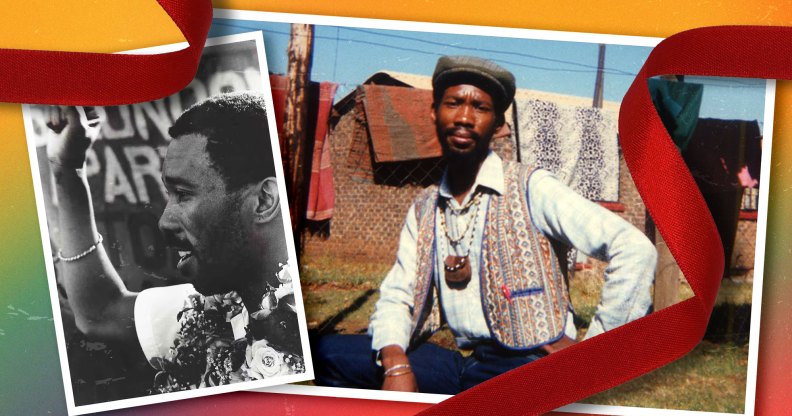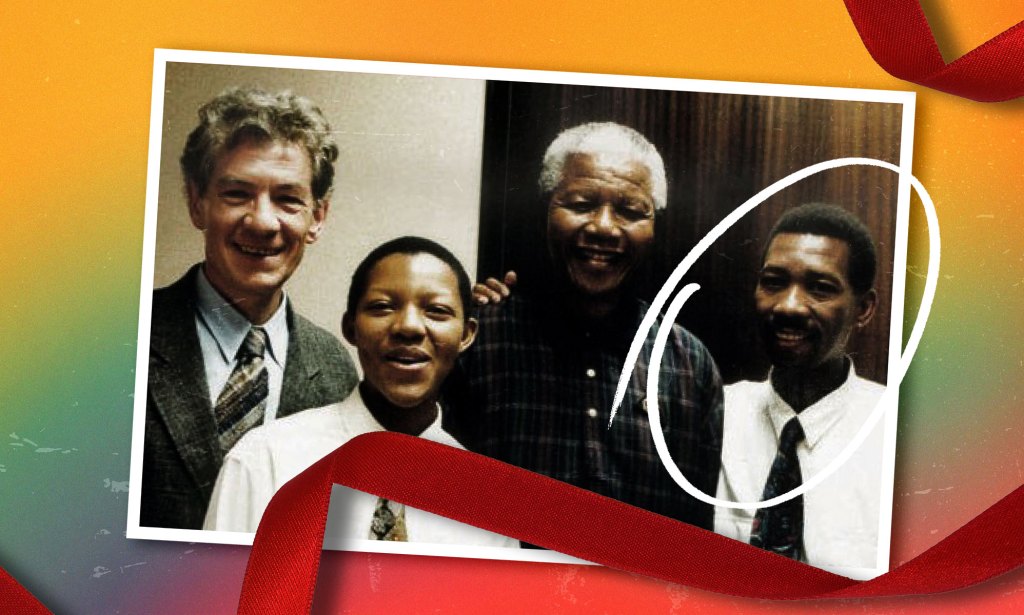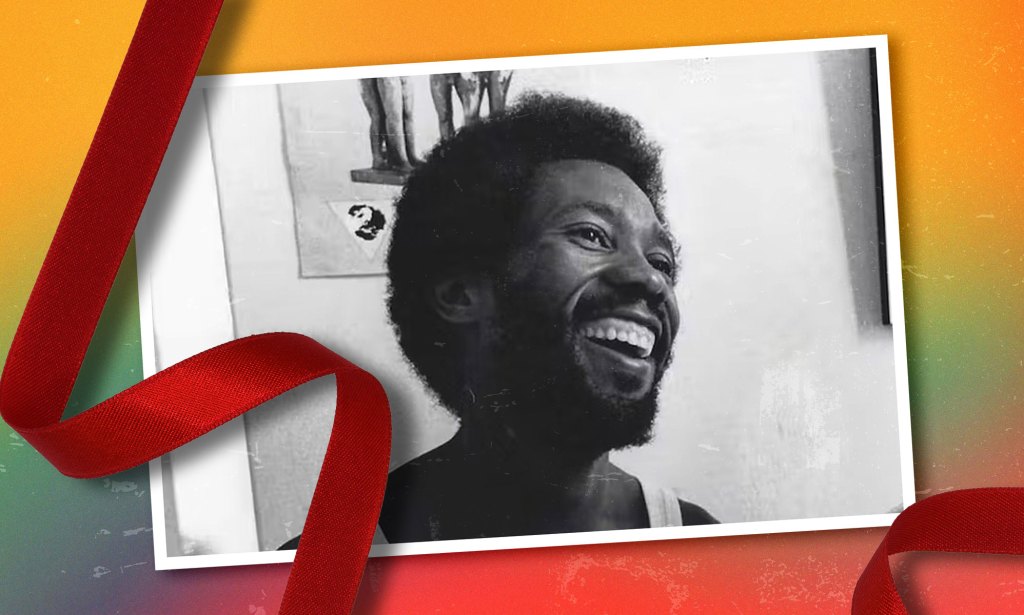Simon Nkoli: Revolutionary South African gay activist who fought apartheid and HIV stigma

Simon Nkoli. (Gordon Rainsford/Simon Nkoli Collection/GALA Queer Archive)
Simon Nkoli’s courage, fervent pride and tireless will to fight for freedom made him a leader in both the anti-apartheid and South African queer liberation movement.
Born in 1957, Nkoli was just 41 years old when he died, in 1998, of an AIDs-related illness.
Though his life was short, Nkoli became a key figure in South African history. He dedicated his life to fighting injustices brought against people because of their race, sexual orientation and HIV status.
Nkoli was born in Soweto, a township south west of Johannesburg, on 26 November 1957. He was one of four children in a family that, like many others at the time, lived in poverty amid the extreme, institutionalised racial segregation that existed in the country back then.
He was sent to live with his grandparents, who worked for a white land-owner. Nkoli worked under harsh conditions on the farm, and he faced abuse from the farm-owner if his work wasn’t finished on time.
As a child, Nkoli attended school in an attempt to cultivate a better life for himself. He faced pressure from his grandparents and their white landlord to quit school and work full-time on the farm when he was just 13.
Fearful of what might happen, Nkoli ran away to live with his mother, where he continued his education.

He realised he was gay when he was a teen. When he was 19, Nkoli met Roy Shepherd through a pen pal magazine, and the pair’s friendship soon became romantic.
Shepherd’s family opposed the relationship – they didn’t want their son romantically involved with a Black man. Nkoli’s family attempted to change his sexual orientation by taking him to traditional healers, priests and psychiatrists.
The opposition devastated the couple, and it was only when they made a suicide pact that his mother finally offered her approval.
After a 1976 uprising in his homeland, Simon Nkoli became heavily involved in politics and the fight against apartheid
Apartheid was a system of legislation that governed relations between South Africa’s white minority and non-white majority for much of the latter half of the 20th century. It upheld racial segregation and political and economic discrimination against non-whites.
Soweto, Simon Nkoli’s birthplace, was the centre of a student uprising in 1976, which soon swept across the country, and was a pivotal moment in the anti-apartheid movement.
Nkoli joined the Congress of South African Students in 1981, but his sexuality led to many debates in the group.
A few years later, in 1983, he joined the Gay Association of South Africa (GASA) to continue his activism against both homophobia and racism. However, he found that GASA was a predominantly white group that was firmly apolitical – a white point of view for the time – and didn’t support his anti-apartheid work.
This came to a head when Nkoli was arrested during a protest against rent increases in 1984. He was among 22 anti-apartheid activists arrested in what was later called the Delmas Treason Trial.
The activists were tried for treason under the apartheid regime’s security laws, and they faced the death penalty if convicted.
GASA refused to support Nkoli and threw him out. At the same time, his sexuality became known to his fellow prisoners, and some argued Nkoli should be tried separately as they feared his sexuality would impact the trial.
Ultimately, they decided to stand trial together.
In 1988, four years after his initial arrest, Simon Nkoli was acquitted. He then founded the Gay and Lesbian Organisation of the Witwatersrand (GLOW), which organised South Africa’s first LGBTQ+ Pride parade in 1990.
Unlike GASA, GLOW took active steps to fight the injustices of apartheid, and it included a number of Black leaders.
Nkoli was one of the first gay activists to meet with president Nelson Mandela, and he helped to ensure that protection from anti-LGBTQ+ discrimination was entrenched in the post-apartheid constitution.

Nkoli discovered he was HIV positive after leaving prison and wanted to help end the stigma around living with the virus. He became one of the first African gay men to publicly self-identify as HIV positive, and he established a peer support group in central Johannesburg.
He was also a key advocate behind anti-LGBTQ+ laws being repealed in 1998, the year he died from an AIDS-related illness.
Simon Nkoli faced injustice head-on for most of his life, and he refused to back down from the fight to make South Africa a better place for future generations. He stood at the intersection of multiple marginalised identities and recognised the power of how to champion others in the struggle for freedom.
“I am Black and I am gay. I cannot separate the two parts into secondary and primary struggles. In South Africa I am oppressed because I am a Black man, and I am oppressed because I am gay,” he once said.
“So, when I fight for my freedom, I must fight against both oppressors. All those who believe in a democratic South Africa must fight against all oppression, all intolerance, all injustice.”
How did this story make you feel?

